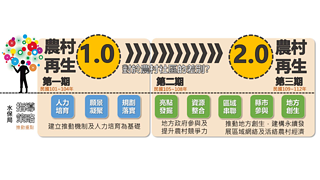- 課程代碼
- 5100
- 課程名稱
- 農村發展政策與實務
- 學分
- 2
- 學期
- 1131
- 單位
- 國際農學 (G30G)
- 修課人數
- 36 人
- 老師
- 助教
- 備註
- Office hour: By appointment
- 課程簡介
- [Course Objectives]This course is designed to provide students with a comprehensive understanding of the theories, practices, and challenges associated with promoting sustainability and development in rural areas. Rural development is a critical component of national and global agendas, as it addresses poverty alleviation, food security, environmental conservation, and social equity. It will prepare students to participate actively in discussions on rural development policies, engage with real-world case studies, and propose sustainable solutions for rural challenges. It will also encourage critical thinking and interdisciplinary approaches to address the complex and evolving nature of rural development in the future.
In particular, this course will:- Analyze the role of stakeholders (e.g., government, NGOs, or/and locals) in rural development.
- Examine the interplay of agriculture, natural resource management, and renewable energy in rural sustainability.
- Explore the importance of infrastructure, education, healthcare, and entrepreneurship in rural livelihoods.
- Develop practical monitoring, evaluation, and project planning skills for rural development initiatives.
- Identify emerging trends, challenges, and opportunities in sustainable rural development.
[Course Outlines]- This is a 2-credit hour, primarily on-site course. Distant instructional methods will be applied as an alternative tool to enhance learning outcome.
-
Throughout the course, students will explore various dimensions of rural development, including agriculture, infrastructure, natural resource management, renewable energy, entrepreneurship, governance, health, education, and gender inclusion. We will examine how sustainable rural development can improve rural communities' quality of life while minimizing negative environmental impacts.
-
Course participants will engage in discussions, case studies, readings, and practical exercises (e.g., SWOT analysis) to gain insights into implementing sustainability in the context of rural development.
-
By the end of the course, students will be equipped with the knowledge and skills needed to analyze rural development challenges, implement sustainable interventions, and contribute to the well-being of rural populations
[Course Delivery]
- This is a face-to-face and distant-learning hybrid course.
- All class materials can be accessed through NCHU iLearning. NCHU iLearning may also be used to conduct parts of class assessments, to submit course assignments, to send announcements and so on. NCHU iLearning can be accessed via https://lms2020.nchu.edu.tw/
- 課程大綱
- See the syllabus under Course Contents.
- 教科書
- All Class handouts will be provided by the instructor through NCHU iLeaning.Supplementary materials (Optional):
- Enamul Haque, A. K., Mukhopadhyay, P., Nepal, M., Shammin, M.R. (2022). Climate change and community resilience: Insights from South Asia. Singapore: Springer Singapore.
- Shepherd, A. (1998). Sustainable Rural Development. London, UK: Red Globe Press.
- 成績說明
- Assignments: 40%;
- Class activities (e.g., online or in-class dicussion): 25%;
- Final term project: 25%;
- Class engagement and participation: 10%
- QR Code
- 放大



